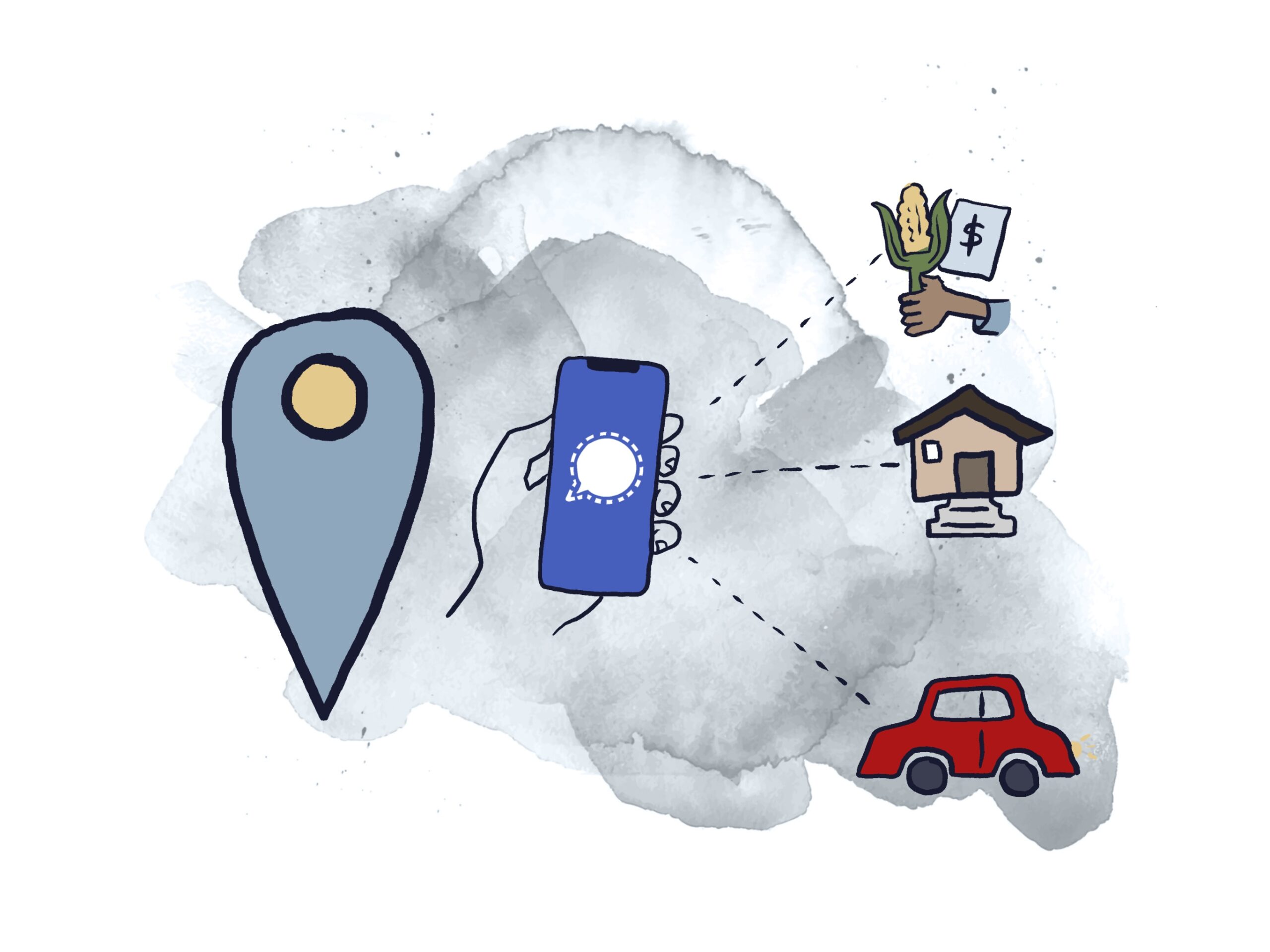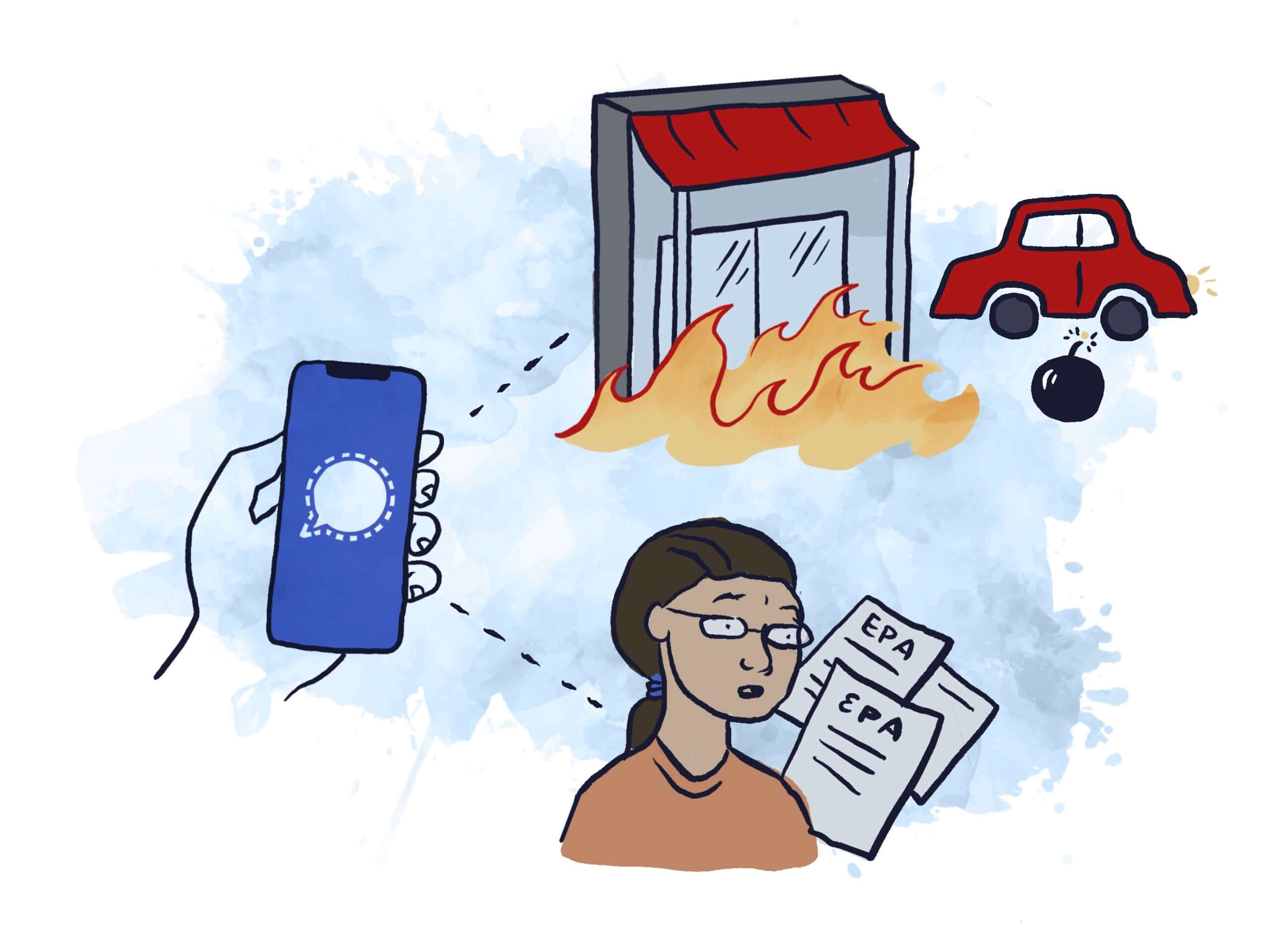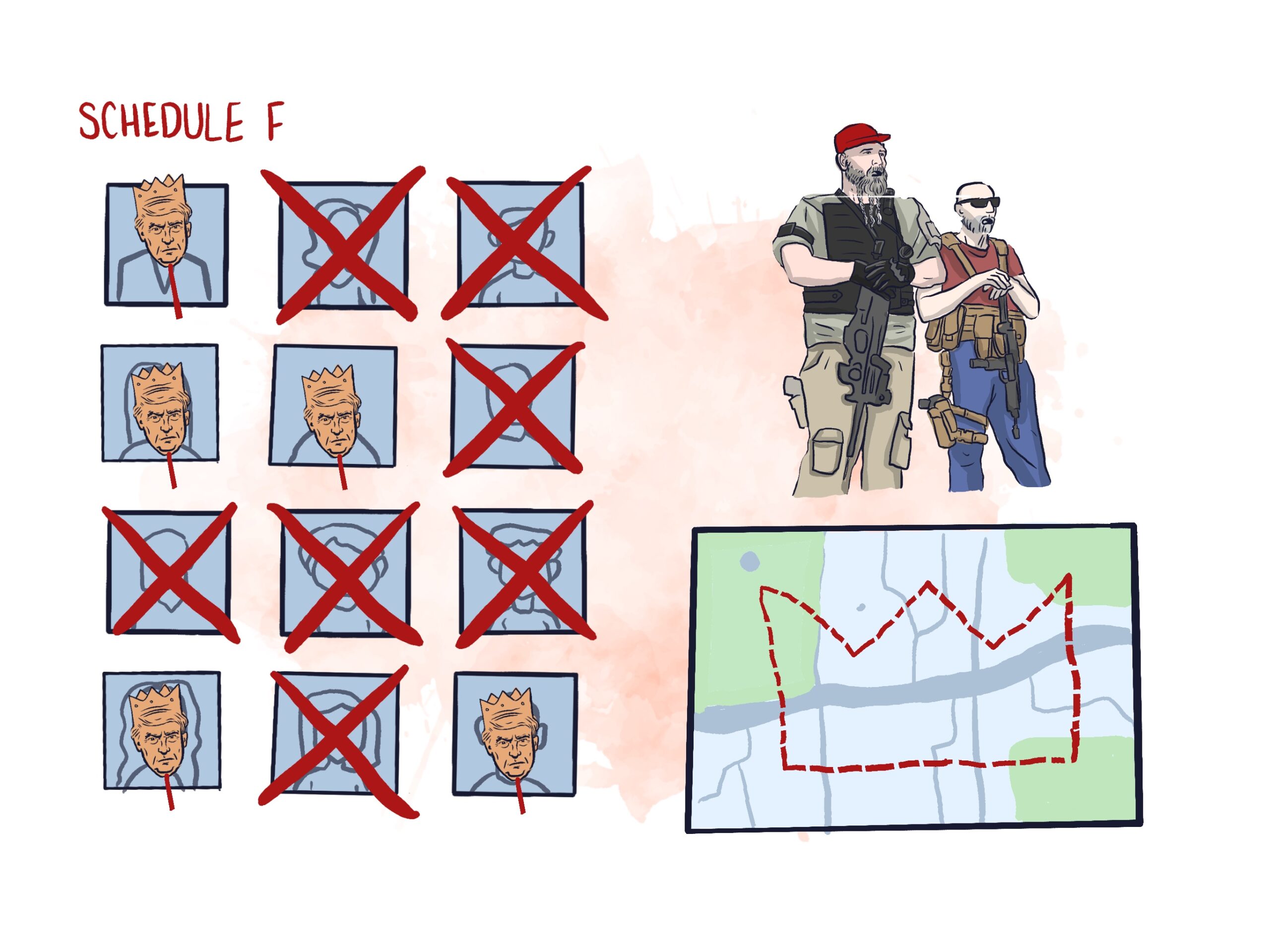You decide it’s best to stay small and not talk openly about your work. Being quiet allows you to have some intimate conversations you might miss if you are more open. Plus, you see many friends burning out by constantly “doing more” to halt the ongoing Trump pronouncements. You resist that tendency. You do your small part and feel good about it.


There is plenty to do with crises mounting. After a local militia burns Black businesses, you help a local businessman who had a bomb placed in his car and believes he’s the primary target. Each case is a lot of work and painful — nobody wants to be uprooted from their home. But many people don’t have the resources to go to a new place. One high-profile case tests you — a relatively high-ranked EPA whistleblower releases a trove of confidential and unflattering documents about the inner chaos and bureaucratic fights of Trump’s presidency. She is fired and repeatedly doxxed after being outed by a confidant.
That work feels meaningful. But it does feel small. Your work feels like barely a dent amidst the national scene. Despite lower poll numbers, Trump continues filling the government with his loyalists. The courts eventually approve his Schedule F reclassification — 50,000 government workers are now being systematically replaced by Trump loyalists. Bureaucratic fights rage across many institutions. Trump installs judges across the country who gerrymander election maps in multiple states to give Republicans long-term power. But your heart tears as you see the language of fear and violence growing: immigrant communities terrified by right-wing militia patrols, increased violence against peaceful protestors, attacks on emissions standards, and exaggerated calls for political arrests.

